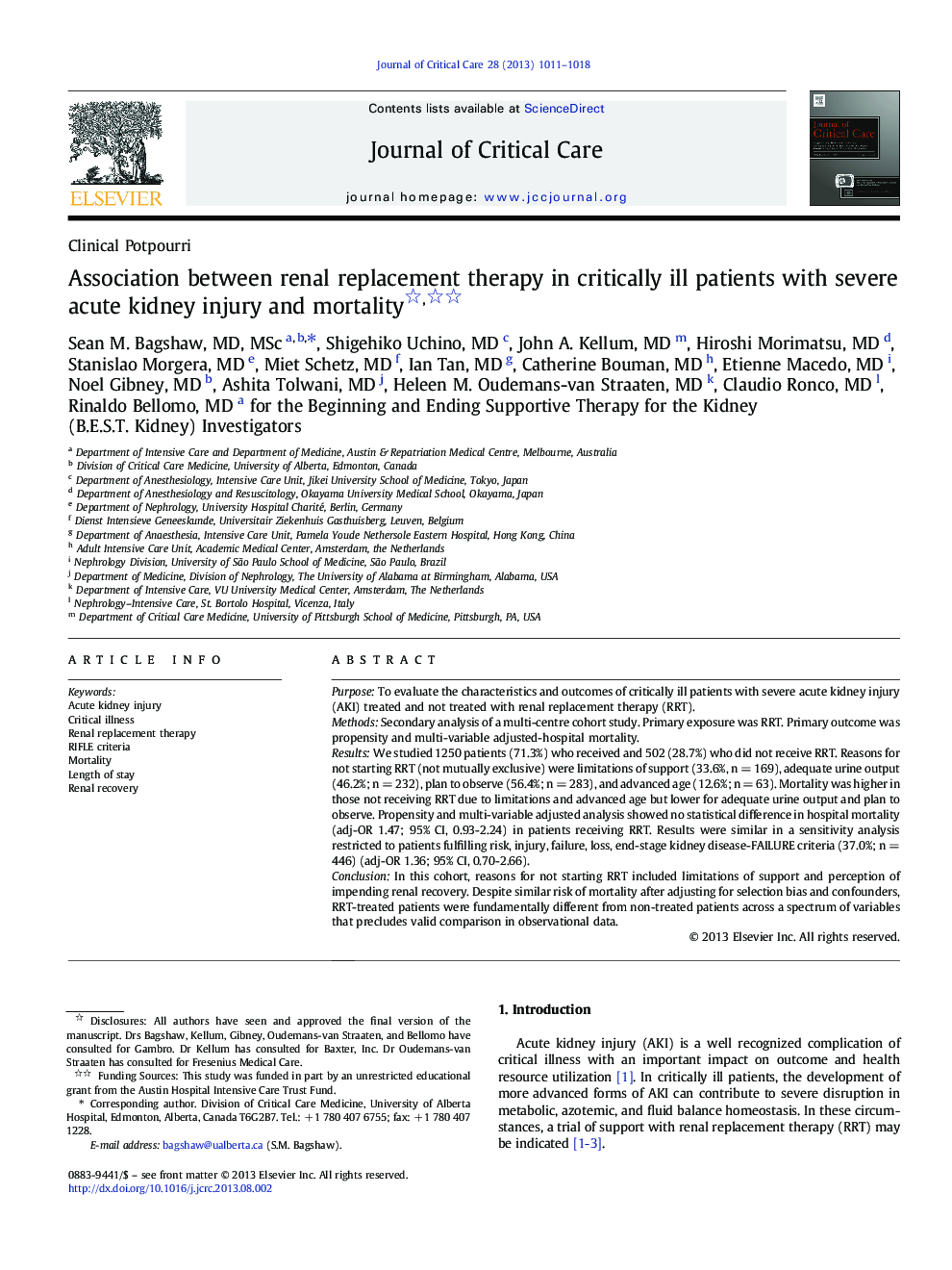| Article ID | Journal | Published Year | Pages | File Type |
|---|---|---|---|---|
| 5887052 | Journal of Critical Care | 2013 | 8 Pages |
PurposeTo evaluate the characteristics and outcomes of critically ill patients with severe acute kidney injury (AKI) treated and not treated with renal replacement therapy (RRT).MethodsSecondary analysis of a multi-centre cohort study. Primary exposure was RRT. Primary outcome was propensity and multi-variable adjusted-hospital mortality.ResultsWe studied 1250 patients (71.3%) who received and 502 (28.7%) who did not receive RRT. Reasons for not starting RRT (not mutually exclusive) were limitations of support (33.6%, n = 169), adequate urine output (46.2%; n = 232), plan to observe (56.4%; n = 283), and advanced age (12.6%; n = 63). Mortality was higher in those not receiving RRT due to limitations and advanced age but lower for adequate urine output and plan to observe. Propensity and multi-variable adjusted analysis showed no statistical difference in hospital mortality (adj-OR 1.47; 95% CI, 0.93-2.24) in patients receiving RRT. Results were similar in a sensitivity analysis restricted to patients fulfilling risk, injury, failure, loss, end-stage kidney disease-FAILURE criteria (37.0%; n = 446) (adj-OR 1.36; 95% CI, 0.70-2.66).ConclusionIn this cohort, reasons for not starting RRT included limitations of support and perception of impending renal recovery. Despite similar risk of mortality after adjusting for selection bias and confounders, RRT-treated patients were fundamentally different from non-treated patients across a spectrum of variables that precludes valid comparison in observational data.
